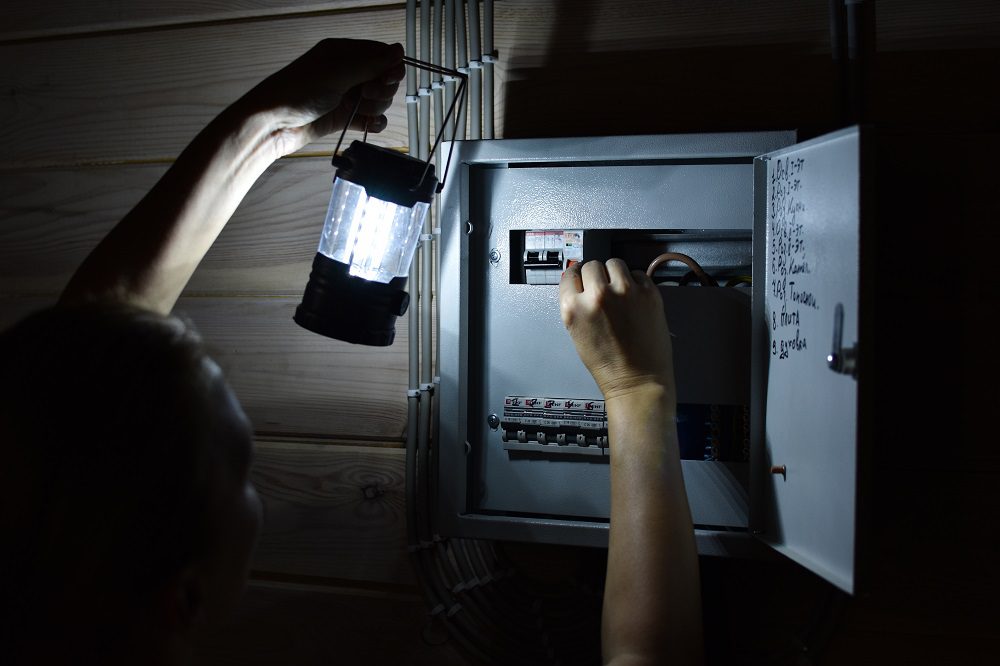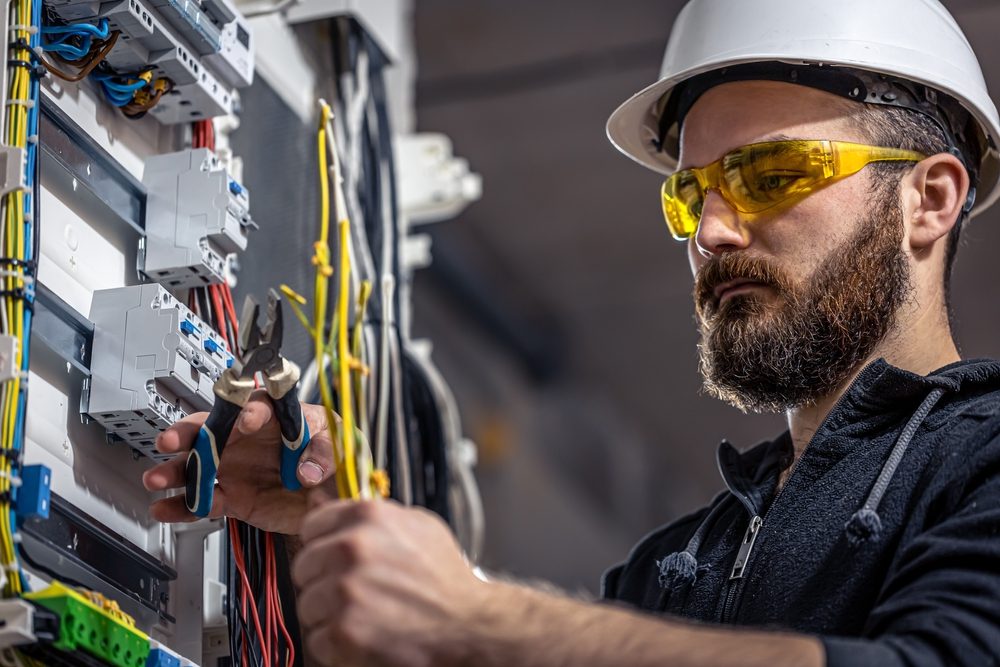
Simple Electrical Safety Tips Every Charlotte Homeowner Should Know
Charlotte homes see a lot of activity: busy school mornings in Ballantyne, evening cookouts in Steele Creek, and weekend projects in Plaza Midwood. Electrical systems work hard behind the scenes for all of it. A few simple habits reduce risk, protect appliances, and cut surprise repair bills. These tips come from day-to-day service calls across Charlotte, and they focus on what actually prevents hazards and saves money.


Know the warning signs before they become emergencies
Electrical problems usually give early signals. A light that flickers once during a storm is one thing. A light that flickers every evening is a load or connection issue. Warm outlets, discolored plates, buzzing at a breaker, or a faint burning odor point to real heat at a connection. Tripping breakers can be a sign of a bad appliance, an overloaded circuit, or a breaker reaching the end of its life.

In older homes in Dilworth and NoDa, mixed wiring ages differently across additions. A room with both three-prong and two-prong outlets is a red flag. In newer builds around SouthPark, arc-fault breakers protect bedroom circuits; if they trip often, the circuit may have a loose device or a damaged cord under a bed. Acting early costs less than calling for after-hours electrical repair in Charlotte, NC once a breaker fails completely.
Use the right outlets in the right rooms
Kitchens, bathrooms, garages, unfinished basements, and outdoor areas should have GFCI protection. GFCIs shut power off in a fraction of a second if electricity tries to take a path through water or a person. Test GFCI outlets monthly with the built-in button. If one will not reset, call for service. In South End condos, shared kitchen circuits see heavy small-appliance use; one faulty GFCI upstream can quietly knock out half the counter outlets.
For living areas and bedrooms, AFCI protection reduces fire risk from damaged cords and loose connections. Most homes built in the last decade around Berewick and Highland Creek already have AFCI breakers. If a remodel added square footage, confirm that new circuits meet current code. It is common to find a beautiful bonus room with 1990s-style protection because the panel never got updated.
Stop overloading outlets and power strips
A power strip is not a permanent solution for a room that needs more outlets. Space heaters, portable AC units, gaming PCs, and hair dryers draw significant current. Putting two or three high-draw devices on one outlet overheats it, even if the breaker does not trip. Daisy-chaining power strips is a fire risk and invalidates most surge protection.
The safe fix is adding a dedicated circuit or more outlets where the load exists. In University City rentals, entertainment centers often share circuits with dining lights and a disposal; that mix explains dimming when a microwave runs. A short visit to map circuits and add a new line prevents nuisance trips and extends device life.
Treat extension cords as temporary
Extension cords do good work during projects and holidays. They are not meant to live under rugs, across thresholds, or behind sofas for months. Heat builds up under carpets, and rolling a chair over a cord breaks insulation. For outdoor decorations in Myers Park or Elizabeth, use cords rated for outdoor use, keep connections off the ground, and protect them from lawn equipment. If you need power where there is no outlet, the right answer is to install one.
Don’t ignore surge protection
Charlotte summers bring strong storms. A whole-home surge protector at the main panel filters large spikes before they hit appliances and electronics. Point-of-use strips help, but they cannot block a surge entering through the service. Homeowners in Lake Wylie and Matthews often call after a storm has taken out a refrigerator control board or a garage door opener. A panel-mounted device costs less than replacing one major appliance. It also helps when utility switching or nearby construction causes smaller, repeated surges that wear electronics down over time.
Give your panel some attention
A breaker panel should be dry, accessible, and labeled. Moisture stains, rust, or a warm cover call for a visit. Panels embedded in closets behind stored items are hard to service during an outage. If labels read “lights” for half the breakers, spend 30 minutes with a helper to map each circuit. Clear labeling speeds emergency work and helps a technician provide accurate pricing.
Many homes from the 1980s and 1990s in Charlotte still run original panels. Certain brands have known reliability issues. If a panel is full and using tandem breakers to squeeze in more circuits, that is a hint the system needs an upgrade, especially before adding EV chargers or a hot tub.
Keep bathrooms and kitchens safe
Water and electricity do not share space well. Replace any cracked outlet cover near a sink, and swap worn switches that feel loose. Under-cabinet lighting installed years ago with snap-on connections sometimes arcs at the joints. In kitchens across SouthPark electrical repair Charlotte NC and Blakeney, countertop appliances often pull from a shared 20-amp small-appliance circuit. If two appliances cause lights to dim or a breaker to warm, split the load with an additional circuit.
Bathroom exhaust fans wired with old switches often seize up and overheat. If a fan hums but moves no air, replace it. Add a timer switch to make sure it runs long enough to dry the room and protect wiring and paint.
Child and pet safety details that matter
For homes with kids, install tamper-resistant outlets. The shutters only open when a plug enters both slots at once. They look normal and reduce shock risk from curious fingers or paperclips. For pets that chew, use cord covers and shorter cords. Do not leave chargers plugged in on the floor; many have transformers that get warm during idle. In playrooms, mount power strips under a desk or high on a wall to keep clutter off the floor.
Outdoor and garage circuits need special care
Exterior outlets and coach lights face rain, sun, and insects. Use in-use bubble covers on outlets. Check that landscape lighting transformers are off the ground and connections are watertight. Garage freezers and tools should run on dedicated circuits, not on GFCI shared with outdoor outlets that can trip unnoticed. After heavy rain in neighborhoods near creeks, ground rods and bonding connections sometimes corrode; a quick inspection protects the home during the next storm.
Know when to call for electrical repair in Charlotte, NC
DIY has limits. Loose neutrals can destroy electronics. Reversed polarity can shock. An outlet that sparks, a breaker that trips repeatedly, or half the home losing power calls for a licensed electrician. Fast help matters during the summer cooling season and during winter space-heater use.
Ewing Electric Co serves Charlotte, including Huntersville, Matthews, Mint Hill, Pineville, and Concord. Same-day appointments are often available for urgent issues. The team inspects, diagnoses, and completes most repairs on the first visit, from faulty GFCIs in Uptown condos to breaker replacements in ranch homes across Madison Park. If work can wait, they present options and pricing so the homeowner can decide based on budget and timeline.
Simple maintenance habits that prevent bigger problems
- Test GFCI and AFCI devices monthly using the test buttons, then reset.
- Replace damaged cords and warm, buzzing, or discolored devices immediately.
- Keep panels clear, dry, labeled, and free of stored items within three feet.
- Schedule an electrical checkup every 3 to 5 years, or before adding high-load devices.
- Add surge protection at the panel and use quality point-of-use strips for electronics.
Planning upgrades safely
Many Charlotte homeowners are adding EV chargers, tankless water heaters, and backyard offices. These loads change how a service performs. Before installing, check service size. A typical 150-amp service can be tight with dual HVAC, electric range, dryer, and a Level 2 charger. Load calculations prevent nuisance trips and overheated mains. For older bungalows in Wesley Heights, grounding and bonding updates often come first. For newer homes in Berewick, panel space and dedicated circuits are the main needs. Addressing these details during planning avoids rework.
What a professional inspection covers
A practical safety visit focuses on high-risk points. A technician checks panel torque, breaker condition, grounding and bonding, GFCI and AFCI operation, and visible device connections. They look for aluminum branch wiring splices in 1970s homes, backstabbed receptacles that loosen over time, and overheated neutrals at multi-wire branch circuits. The goal is to correct small faults early, reduce heat at connections, and protect electronics.
Ready for quick help in your neighborhood
If a breaker keeps tripping, an outlet feels hot, or storms keep knocking out devices, Ewing Electric Co is available for electrical repair in Charlotte, NC. The team knows local housing stock and common issues by neighborhood, which speeds diagnosis. Call or book online for same-day service in Charlotte and nearby areas. A short visit today can prevent a costly outage tomorrow.
Ewing Electric Co provides dependable residential and commercial electrical services in Charlotte, NC. Family-owned for over 35 years, we handle electrical panel upgrades, EV charger installation, generator installation, whole-home rewiring, and 24/7 emergency repairs. Our licensed electricians deliver code-compliant, energy-efficient solutions with honest pricing and careful workmanship. From quick home fixes to full commercial installations, we’re known for reliable service done right the first time. Proudly serving Charlotte, Matthews, Mint Hill, and nearby communities. Ewing Electric Co
7316 Wallace Rd STE D Phone: (704) 804-3320 Website:
https://ewingelectricco.com/ |
Google Site
Social:
Facebook |
Instagram |
Twitter
Map: View on Google Maps
Charlotte,
NC
28212,
USA